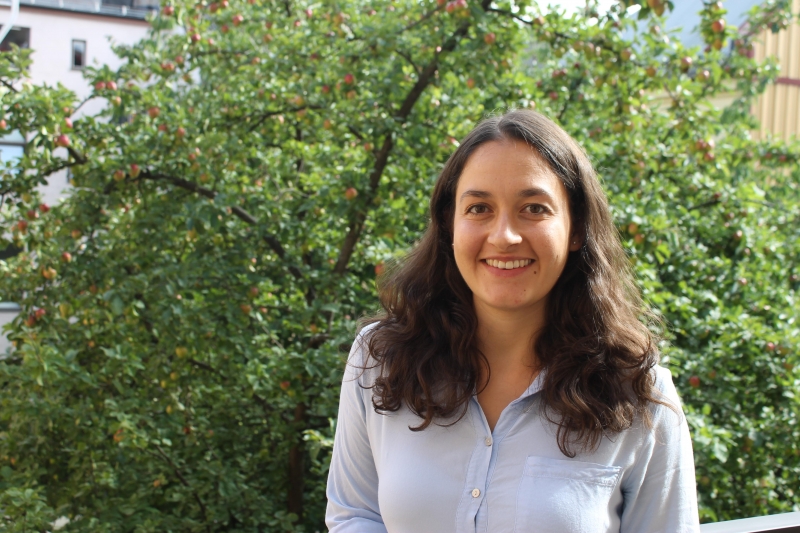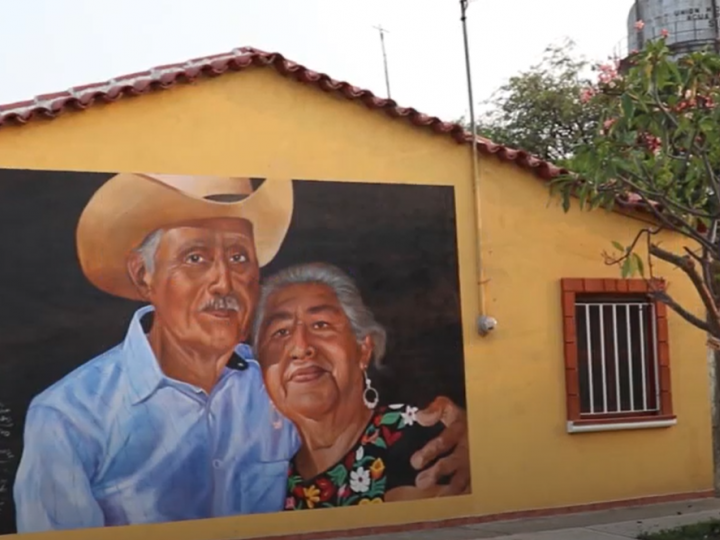This certainly includes the investment in new renewable energy projects. But the story does not end here: as with all development projects, economic and political interests of powerful multinational companies, investors, and governments are at play when decisions about renewable energy projects are taken. This leads to potential conflicts with the concerned local Environmental Human Rights Defenders (EHRDs), who have brought forward consistent claims against the management of megaprojects, thereby defending their right to participate in decision-making processes concerning their territory and the local natural resources. Too often these individuals find themselves in precarious situations: EHRDs have reported negative experiences ranging from stigmatization to threats and physical attacks including murder.
Defending human rights and the environment in Unión Hidalgo
According to the Mexican Centre for Environmental Law (CEMDA), 18 EHRDs were killed and 65 attacked in Mexico during 2020, thereby being the year with the most aggressions against EHRDs in the current government administration and demonstrating an upward trend.

Some of these attacks have occurred in the town of Unión Hidalgo, Oaxaca, Mexico where wind parks have been installed since 2012. Residents of Unión Hidalgo claim that their indigenous rights have been violated by multinational wind energy producers and the Mexican government. They take high risks in demanding their right to participate in decisions about their communal land, thereby protecting the local environment. Located in the Isthmus of Tehuantepec in the state of Oaxaca, the town is a strategic location for wind energy production. Currently, the company Électricité de France (EDF) is working on the implementation of the Gunaa Sicarú wind park and is undertaking the consultation of the local Zapotec indigenous community to that end.
However, some members of this community claim that they were not consulted properly. Therefore, national and international NGOs have supported the community in the process of demanding the right to consultation, such as the European Center for Constitutional and Human Rights (ECCHR), ProDESC and NHRF’s grantee organization, Código DH. In its Policy Paper, the ECCHR explains that even though part of the land in Unión Hidalgo is administered communally, the community assembly had not received sufficient information about the consequences of the project before contracts were signed between EDF and the government of Oaxaca in 2017.
See the video about Gabriel Sanchez, who is committed to defend the land and territory in Unió Hidalgo (subtitles in English are available on Youtube):
“They see the right to consultation as a mere formality, simply pushing through the right to consultation to then install the park. They are not seeing it as a community's need to have a say, to be able to decide, to be able to dialogue and to be able to propose.” Gabriel Sánchez, environmental human rights defender from Unión Hidalgo
Due to protests from the local population, the District Court of Oaxaca suspended the consultation in 2018. In October 2020, when the consultation process was still not implemented properly, the affected population, in cooperation with ECCHR and ProDESC, filed a civil lawsuit against EDF. During this process, local activists have experienced public stigmatization and threats.
The ECCHR concludes that the communities’ right to a free, prior and informed consent as established in international human rights law has not been respected, and that the Mexican State has failed in guaranteeing that right. Internal conflicts have arisen as well as continuous threats and attacks against EHRDs, and the organizations report that a general state of violence is still present in the community.
“It is clean energy for those who receive it, but not for us who suffer from it.” Amelia Villalobos, environmental rights defender from Unión Hidalgo
Diverse perspectives on sustainable development
Violence, stigmatization and the use of power to silence individuals and communities who dare to speak up against renewable energy projects is evident in the case of Unión Hidalgo. Sadly, this is not the only example. Looking at the renewable energy sector, the Business & Human Rights Resource Centre reported 197 allegations of human rights abuses since 2010.
A personal insight from conversations with defenders from Unión Hidalgo for academic research on this topic, was that the EHRDs’ biggest discontent was the way the wind parks are managed. The feeling that their own knowledge and opinions are not taken seriously was predominant. It is therefore essential to open the discourse about renewable energy in Unión Hidalgo and other contexts to allow considerations on the social and environmental consequences of these projects, as well as the structural conditions and power hierarchies that underlie and influence these contexts.
In addition to holding companies and governments accountable for the human rights violations that result from economic activities, views on what sustainable development means for the local community must be included in decision-making processes. Their knowledge is important for understanding the local environmental challenges, the protection of biodiversity and it should therefore be a part of the solution for mitigating climate change and of what is commonly understood under sustainable development.
“We think that with money we can buy everything but if we have a lot of money but there is no clean air to breathe, no healthy land to farm, no clean and pure water to drink, and no fish to eat, where are we going to go?” Rosalva Fuentes Martínez, environmental rights defender from Unión Hidalgo
The EHRDs are key actors - sometimes the only ones – that protect ecosystems which are being destroyed, and where there is little resistance to the powerful economic and political interests at play. Most of them do so not because they choose to, but because they and their communities depend on the conservation of the environment for sustaining their lifestyles and identities – thereby being forced to expose themselves to dangerous situations and even paying with their lives. Ultimately, and not least because the enjoyment of a healthy environment of all of us and of future generations depends on their work, the injustices they face must be uncovered and remedied.
The NHRF invites different actors within the human rights field to contribute on this blog. The opinions expressed here are those of the authors.
All videos by Código DH, including the main photo.

